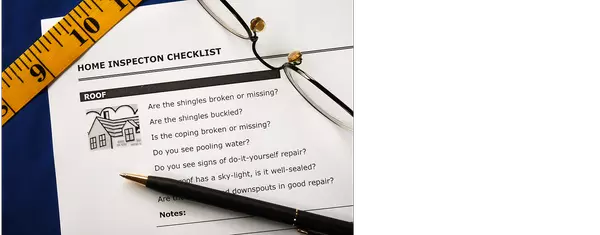Home Inspections 101: What To Expect and the Dealbreakers To Watch Out For
If you have ever bought or sold a home, you know that a home inspection is an important part of the process.
The purpose of a home inspection is to identify potential issues with the house and give the buyer a better idea of what ongoing maintenance the property will require. As the buyer, a thorough home inspection can save you money in unexpected repairs or from buying a home that needs more work than you can handle.
If the home inspection process is new to you, you likely have many questions. Read on to learn more about the purpose and process of home inspections, as well as dealbreaking problems to look for in your home inspection report.
What Does a Home Inspection Cover?
A home inspection involves a visual assessment of the physical structure and mechanical systems of a home, including the roof, ceilings, walls, floors, windows, and doors. A home inspector’s job is to uncover issues that may need to be addressed in the home before it can be sold.
The inspector will follow a thorough checklist, including making sure all major appliances are functional, inspecting the HVAC system, examining the plumbing and electrical systems, and checking the attic and basement for signs of damage.
Their main focus is on health and safety issues and major defects. These include:
- Water damage
- Foundation and structural issues
- Electrical or plumbing problems
- Insect or pest infestation
- Roof damage and integrity
- HVAC issues
A home inspector won’t spend time on cosmetic flaws (like peeling wallpaper) unless they indicate deeper problems with the home.
Who Hires the Home Inspector?
In nearly every residential real estate transaction, it is the buyer’s responsibility to hire a home inspector. As the buyer, if you aren’t sure who to hire, check with your Realtor — they will likely have a list of reputable home inspectors in your area they can recommend.
Ideally, you will want to interview a few potential home inspectors, asking about their experience, training, and areas of expertise, and checking their references. Keep in mind, however, that there is a time limit on getting your home inspection done.
What is the Timeline For a Home Inspection?
The home inspection takes place after the seller has accepted the buyer’s offer. It typically needs to be completed within 10 days of when the final offer was accepted by both the buyer and seller, though it can vary from transaction to transaction. This time period is referred to as the Inspection Contingency period.
Who Should Be Present During the Home Inspection?
The person who arranges and schedules the inspection should be present while the home inspector is there. As the buyer, attending the home inspection gives you the chance to ask questions and have the inspector explain any issues they find.
Keep in mind that a thorough home inspection can take several hours, and plan accordingly.
What Happens After the Home Inspection?
Once the inspection is completed, the inspector will furnish the buyer with an inspection report. This report details the inspector’s findings and contains checklists, summaries, photographs, and notes. It will include recommended repairs and replacements, as well as an estimate of the remaining useful life of the major systems of the home, including the roof, structure, finishes, and equipment.
Once the buyer has the inspection report, they then have the chance to renegotiate with the seller to either fix any major issues discovered or reduce the selling price to cover the costs of the repairs.
Pro tip: As the buyer, you obviously want to have as much repaired as possible, but asking for too many updates can make sellers want to pull the plug on your deal. When asking the seller for repairs, stick to major fixes — such as a failing roof — and let the cosmetic details go.
Potential Dealbreakers to Look For in a Home Inspection
While many fixes will be worth negotiating, sometimes the inspector will find problems that may require more work than you are able or willing to do. Watch for these dealbreakers in your inspection report:
- Foundation problems. Fixing foundation issues can be expensive and time consuming, and depending on how bad the damage is, it could have already affected the rest of the home.
- Outdated wiring, especially old knob-and-tube-style wiring, is another expensive fix. And since outdated wiring can be a big fire hazard, it will need to be upgraded.
- Bad plumbing. Leaks, low water pressure, and water stains can indicate issues with the home’s pipes. Fixing or replacing water pipes can be costly, especially if the damage is extensive.
- Mold can be a major health hazard. Depending on how extensive the mold is, it could be quite the project to make the house a safe place to live.
- Poorly done remodels or upgrades. If the home was updated by previous owners who cut corners with low-quality materials, poor workmanship, or failing to get the proper permits, you could run into big problems later on.
- Pest infestation. Pests like termites or carpenter ants can threaten the structural stability of a home. Extermination of the pests can be difficult, and major repairs to the home’s structure could be needed.
If your home inspector finds any of these issues, or other issues they estimate will be costly to fix, talk it over with your Realtor. They can help you determine if it’s worth renegotiating with the seller or if it’s time to walk away and search for a different home.
Whether you’re a buyer or a seller, home inspections can be stressful, time consuming, and frustrating if you don’t have the right help by your side. Having a good Realtor to walk you through the process can ease the burden and get you in your next home with minimal hassle.
Looking to buy or sell your home? Contact the experienced team of Realtors at ResComPro to get started today!
Categories


